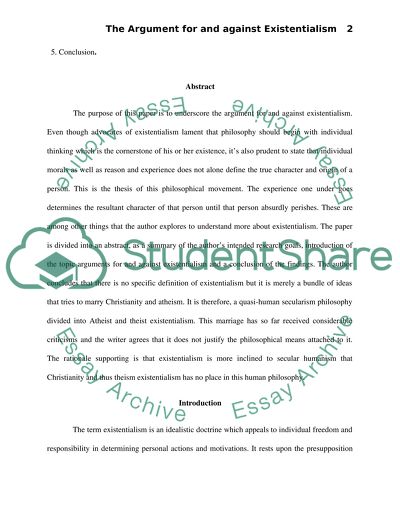Cite this document
(The Argument for and against Existentialism Term Paper Example | Topics and Well Written Essays - 3750 words, n.d.)
The Argument for and against Existentialism Term Paper Example | Topics and Well Written Essays - 3750 words. https://studentshare.org/philosophy/1403021-existentialism
The Argument for and against Existentialism Term Paper Example | Topics and Well Written Essays - 3750 words. https://studentshare.org/philosophy/1403021-existentialism
(The Argument for and Against Existentialism Term Paper Example | Topics and Well Written Essays - 3750 Words)
The Argument for and Against Existentialism Term Paper Example | Topics and Well Written Essays - 3750 Words. https://studentshare.org/philosophy/1403021-existentialism.
The Argument for and Against Existentialism Term Paper Example | Topics and Well Written Essays - 3750 Words. https://studentshare.org/philosophy/1403021-existentialism.
“The Argument for and Against Existentialism Term Paper Example | Topics and Well Written Essays - 3750 Words”. https://studentshare.org/philosophy/1403021-existentialism.


